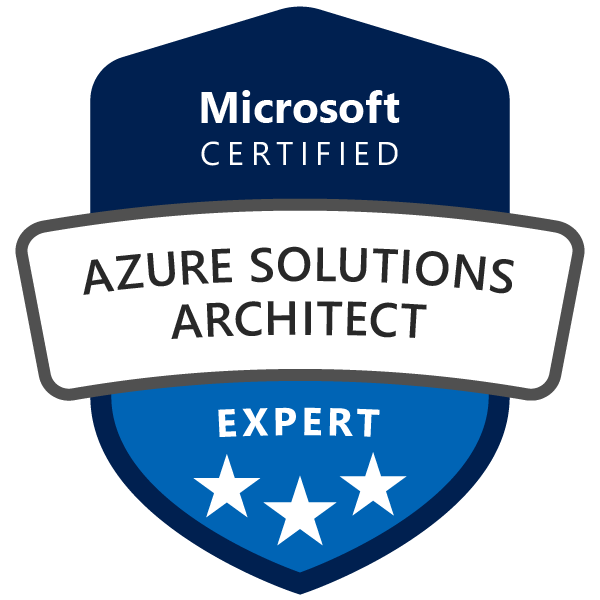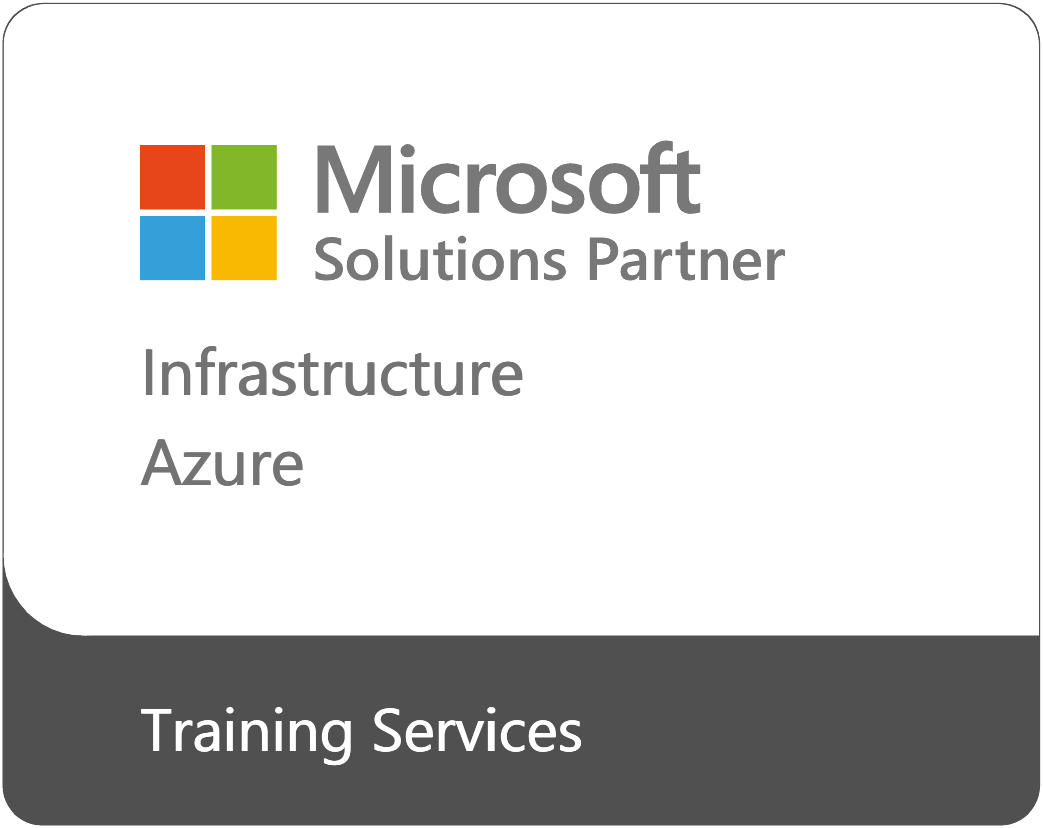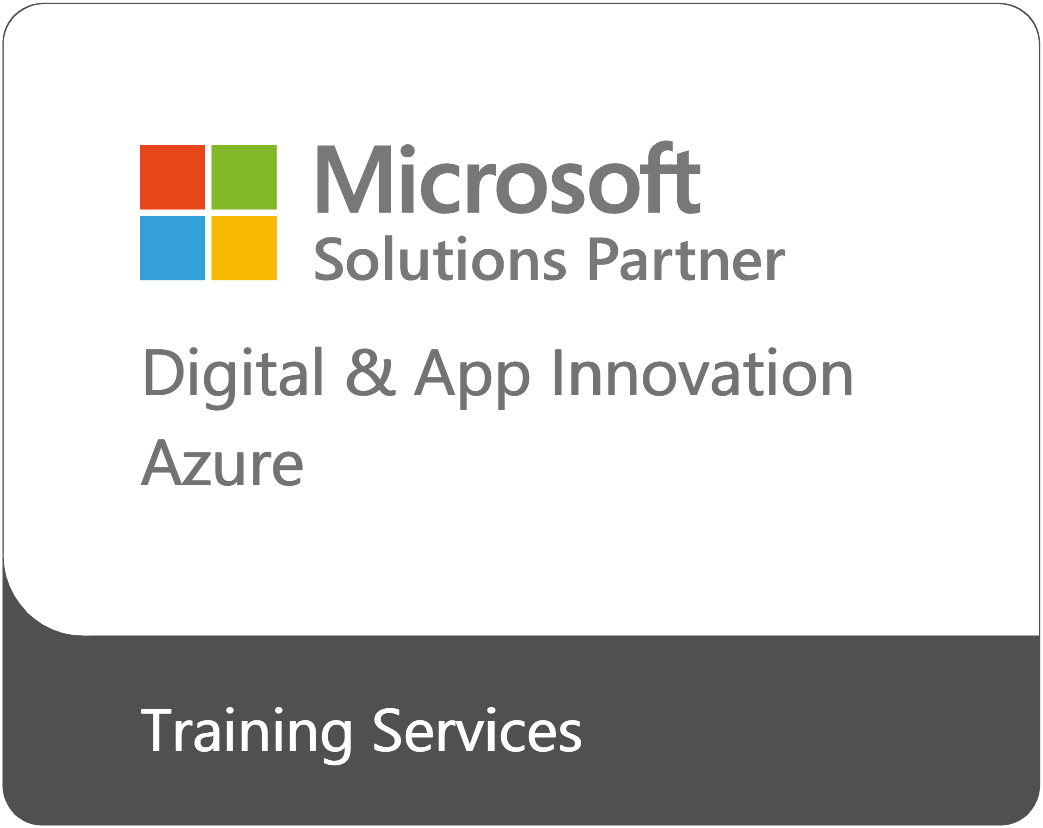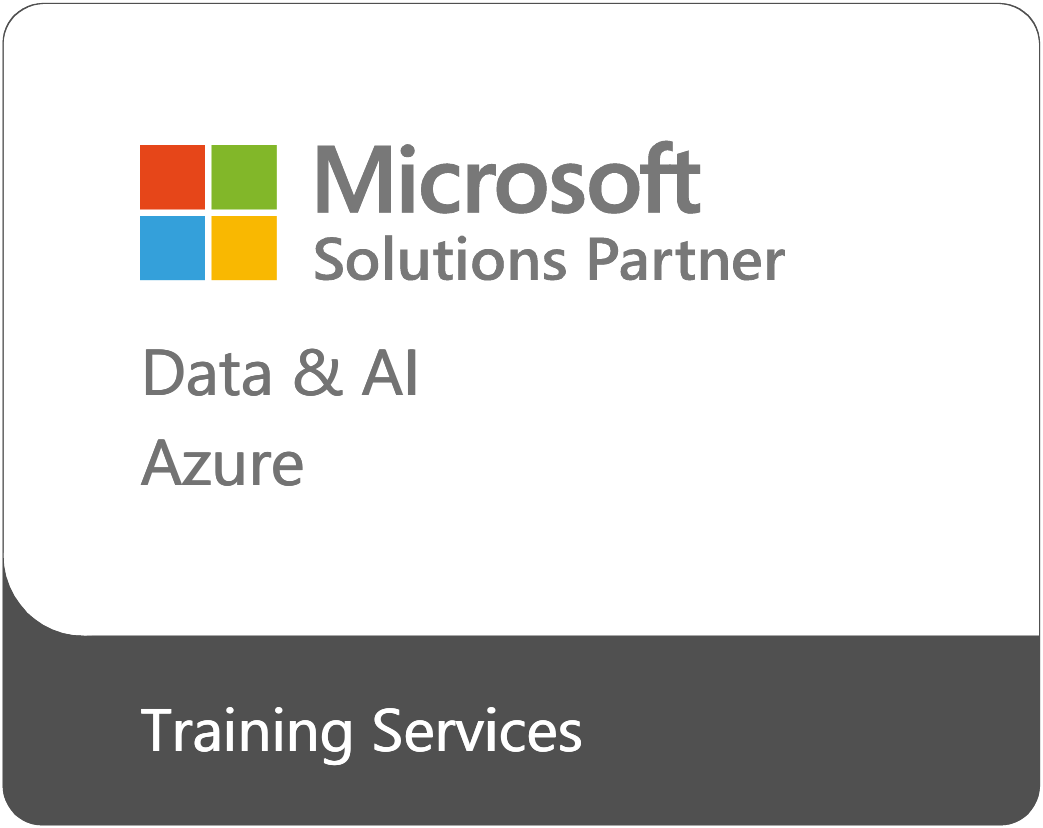Es dauert nur zwei Sekunden, um unsere Preise zu sehen ...
Überblick




In diesem Intensivkurs Microsoft Certified: Azure Solutions Architect Expert erwerben Sie die Fähigkeiten, die Sie als Azure Solutions Architect benötigen, um Azure-Lösungen zu implementieren, zu überwachen und zu warten - von der Implementierung virtueller Maschinen bis hin zum Entwurf von API-Integrationsstrategien. Außerdem erhalten Sie ein Expertenwissen über die Servicefunktionen innerhalb der Microsoft Azure-Cloud.
In nur 6 Tagen lernen Sie außerdem, wie man:
- Infrastruktur bereitstellen und konfigurieren
- Workloads und Sicherheit implementieren
- Erstellen und Bereitstellen von Anwendungen
- Authentifizierung und sichere Daten implementieren
- Entwickeln für die Cloud und für Azure Storage
- Bestimmen von Workload-Anforderungen
- Design für Identität und Sicherheit
- Entwerfen einer Datenplattformlösung
- Entwurf einer Strategie für die Geschäftskontinuität
- Entwurf für Bereitstellung, Migration und Integration
- Entwurf einer Infrastrukturstrategie
Sie tauchen in den Lehrplan ein und haben 24/7 Zugang zu den Übungsräumen mit Firebrands einzigartiger Methodik Lecture | Lab | Review, die Ihnen hilft, die Informationen schneller aufzubauen und zu behalten.
Sie erhalten Zugang zu Microsoft Official Courseware (MOCs) und lernen von zertifizierten Microsoft trainers MCTs), da Firebrand ein Microsoft Gold Partner for Learning ist.
Sie werden auch auf das Exam AZ-104: Microsoft Azure Administrator und das Exam AZ-305: Designing Microsoft Azure Infrastructure Solutions vorbereitet. Sie werden diese Examen während des Kurses ablegen, was durch Ihre Zertifizierungsgarantie abgedeckt ist.
Zertifizierungspfad
Sie haben auch die Möglichkeit, die Examen separat abzulegen. Sobald Sie beide absolviert haben, erhalten Sie automatisch die Microsoft Certified: Solutions Architect Expert certificationZertifizierung:
- Exam AZ-104: Microsoft Azure Administrator
- Exam AZ-305: Designing Microsoft Azure Infrastructure Solutions
Präsenz- und Online-Schulung zum Microsoft Azure Solutions Architect Expert
Firebrand bietet sowohl einen Präsenzkurs als auch einen Microsoft Azure Solutions Architect Expert Online-Kurs an, der alles beinhaltet, was Sie brauchen, um in Rekordzeit zertifiziert zu werden:
- Offizielle Kursunterlagen, Labore und praktische Examen
- Zertifizierungsprüfungen AZ-104: Microsoft Azure Administrator und AZ-305: Designing Microsoft Azure Infrastructure Solutions
- Unterkunft, Mahlzeiten und Snacks (bei Kursen vor Ort)
Zielgruppe
Wenn Sie ein Azure-Administrator sind, der Cloud-Dienste verwaltet, die sich über eine Vielzahl von Cloud-Funktionen erstrecken, ist dieser Kurs ideal für Sie.
Lehrplan
Kurs AZ-104: Microsoft Azure Administrator
- Module 1: Identity
- Module 2: Governance and Compliance
- Module 3: Azure Administration
- Module 4: Virtual Networking
- Module 5: Intersite Connectivity
- Module 6: Network Traffic Management
- Module 7: Azure Storage
- Module 8: Azure Virtual Machines
- Module 9: PaaS Compute Options
- Module 10: Data Protection
- Module 11: Monitoring
Kurs AZ-305: Designing Microsoft Azure Infrastructure Solutions
- Module 1: Design governance and compute solutions
- Module 2: Design storage and data integration solutions
- Module 3: Design app architecture, access, and monitoring solutions
- Module 4: Design network, continuity, and migration solutions
FAQs
Für wen ist Microsoft AZ-104T00 gedacht?
Microsoft Azure Administrator Associate (AZ-104) richtet sich an Azure-Administratoren, die Cloud-Dienste verwalten, die Speicher-, Sicherheits-, Netzwerk- und Rechenkapazitäten umfassen.
Dieser Kurs ist ideal für:
- IT-Fachleute und Systemadministratoren, die auf die Cloud umsteigen
- Hybrid-Cloud-Administratoren
- Support-Ingenieure, insbesondere für Azure-Lösungen
- Cloud-Ingenieure und -Techniker
- Entwickler, die auf Cloud-Betrieb umsteigen
- DevOps-Fachleute
- Cloud-Betriebsfachleute
Für wen ist Microsoft AZ-305T00 gedacht?
Die Zertifizierung „Microsoft Azure Solutions Architect Expert (AZ-305)“ richtet sich an Azure-Lösungsarchitekten, die Azure-Lösungen entwerfen und implementieren, die den Geschäftsanforderungen entsprechen.
Sie ist ideal für Fachleute mit fortgeschrittenen Kenntnissen und Erfahrungen in verschiedenen IT-Betriebsbereichen und Azure-Diensten, deren Schwerpunkt auf der Umsetzung von Geschäftsanforderungen in sichere, skalierbare und zuverlässige Cloud-Lösungen liegt:
- IT-Fachleute mit fortgeschrittener Erfahrung
- Cloud-Architekten und -Ingenieure
- Fachleute, die die Zertifizierung „Azure Administrators (AZ-104)” erworben haben
- Entwickler mit Azure-Erfahrung
- Cloud-Berater
- IT-Berater
- DevOps-Ingenieure
Zertifizierung
Im Rahmen Ihres Intensivkurses legen Sie die folgenden Examen im Firebrand Trainingszentrum ab, die durch Ihre Zertifizierungsgarantieabgedeckt sind:
Exam AZ-104: Microsoft Azure Administrator
- Exam code: AZ-104
- Sprache: English
- Domains:
- Manage Azure identities and governance (15-20%)
- Implement and manage storage (15-20%)
- Deploy and manage Azure compute resources (20-25%)
- Configure and manage virtual networking (25-30%)
- Monitor and back up Azure resources (10-15%)
Exam AZ-305: Designing Microsoft Azure Infrastructure Solutions
- Exam code: AZ-305
- Sprache: English
- Domains:
- Design identity, governance, and monitoring solutions (25-30%)
- Design data storage solutions (25-30%)
- Design business continuity solutions (10-15%)
- Design infrastructure solutions (25-30%)
Voraussetzungen
Vor der Teilnahme an diesem Intensivkurs sollten Sie über Kenntnisse in PowerShell und dem Command Line Interface verfügen. Sie sollten auch vertraut sein mit:
- On-premises virtualisation technologies, including: VMs, virtual networking, and virtual hard disks
- Network configuration, including TCP/IP, Domain Name System (DNS), virtual private networks (VPNs), firewalls, and encryption technologies
- Active Directory concepts, including domains, forests, domain controllers, replication, Kerberos protocol, and Lightweight Directory Access Protocol (LDAP)
- Resilience and disaster recovery, including backup and restore operations
- The Azure Portal
- ARM templates
- Operating systems
- Virtualisation
- Cloud infrastructure
- Storage structures
- Networking
Leistungspaket
Ihr Intensivkurs umfasst:
- Unterkunft *
- Mahlzeiten, unbegrenzte Snacks, Getränke, Tee und Kaffee *
- Prüfungen vor Ort **
- Prüfungsgutscheine **
- Übungstests **
- Zertifizierungsgarantie ***
- Kursunterlagen
- Bis zu 12 Stunden Unterricht mit Kursleiter pro Tag
- 24-Stunden-Zugang zu den Trainingsräumen
- Digitale Kursunterlagen **
* Nur für Präsenzschulungen. Die Unterkunft ist ab der Nacht vor Kursbeginn inbegriffen. Dies gilt nicht für Online-Kurse.
** Es gelten einige Ausnahmen. Bitte beachten Sie die Informationen auf der Kurseite oder wenden Sie sich an unsere Experten.
*** Wir sind sicher, dass Sie Ihren Kurs beim ersten Mal bestehen werden. Wenn nicht, kommen Sie innerhalb eines Jahres wieder und zahlen nur für Unterkunft, Prüfungen und Nebenkosten.
Sind Sie bereit für den Kurs?
Gewinnen Sie exklusiven Zugang zu unseren kostenlosen Übungstests! Los geht´s
Vorteile
Sieben Gründe, warum Sie Ihren Kurs bei Firebrand Training absolvieren sollten
- Zwei Möglichkeiten der Schulung. Wählen Sie zwischen Präsenz- und Online-Kursen.
- Schnell zertifiziert. Mit uns werden Sie in Rekordzeit geschult.
- Unser Kurspreis beinhaltet alles. Eine einmalige Kursgebühr deckt alle Kursmaterialien, Prüfungen**, Unterkunft* und Mahlzeiten* ab. Keine versteckten Extrakosten.
- Bestehen Sie beim ersten Mal oder trainieren Sie erneut kostenlos. Das ist unsere Garantie. Wir sind sicher, dass Sie Ihren Kurs beim ersten Mal bestehen werden. Wenn nicht, kommen Sie innerhalb eines Jahres wieder und zahlen nur für Unterkunft, Prüfungen und Nebenkosten.
- Sie werden mehr lernen. Ein Tag bei einem traditionellen Schulungsanbieter dauert in der Regel von 9 bis 17 Uhr, mit einer schönen langen Mittagspause. Bei Firebrand Training erhalten Sie mindestens 10 Stunden pro Tag, in denen Sie mit Ihrem Trainer lernen.
- Sie werden schneller lernen. Wahrscheinlich haben Sie einen anderen Lernstil als Ihre Mitschüler. Wir kombinieren visuelle, auditive und taktile Methoden, um den Stoff so zu vermitteln, so dass Sie schneller und leichter lernen.
- Sie werden von den Besten lernen. Seit 2010 wurden wir jedes Jahr von der Schulungsbranche zu den „Top 20 IT-Schulungsunternehmen des Jahres“ gewählt. Wir haben nicht nur viele weitere Auszeichnungen erhalten, sondern auch über 135.000 Fachleute geschult und zertifiziert.
- Nur für Schulungen vor Ort. Gilt nicht für Online-Kurse.
** Es gelten einige Ausnahmen. Bitte lesen Sie die Prüfungsübersicht oder sprechen Sie mit unseren Experten
 Leider keine Ergebnisse gefunden!
Leider keine Ergebnisse gefunden!
Welcher Lerntyp sind Sie?
Residential
- Offizielle Inhalte des Anbieters, die auf die Zertifizierung abgestimmt sind
- Konzentriert sich darauf, jeden Teilnehmer auf die Prüfung vorzubereiten
- Live-Unterricht unter Anleitung
- Zusätzliche praktische Übungen und Wiederholungssitzungen
- Prüfungsvorbereitung und Probetests
- Zertifizierungsgarantie
- Prüfungsgutschein inbegriffen
- Verlängerte Schulungstage
- 24-Stunden-Zugang zum Schulungsraum
- /Schulungsraum
- Verpflegung und Unterkunft inbegriffen
- Ablenkungsfrei
- Vor-Ort-Tests
Online Live
- Offizielle Inhalte des Anbieters, die auf die Zertifizierung abgestimmt sind
- Konzentriert sich darauf, jeden Schüler auf seine Prüfung vorzubereiten
- Live-Unterricht unter Anleitung eines Lehrers
- Zusätzliche praktische Übungen und Wiederholungssitzungen
- Prüfungsvorbereitung und Probetests
- Zertifizierungsgarantie
- Prüfungsgutschein enthalten
- Teilnahme landesweit
- Verlängerte Schulungstage